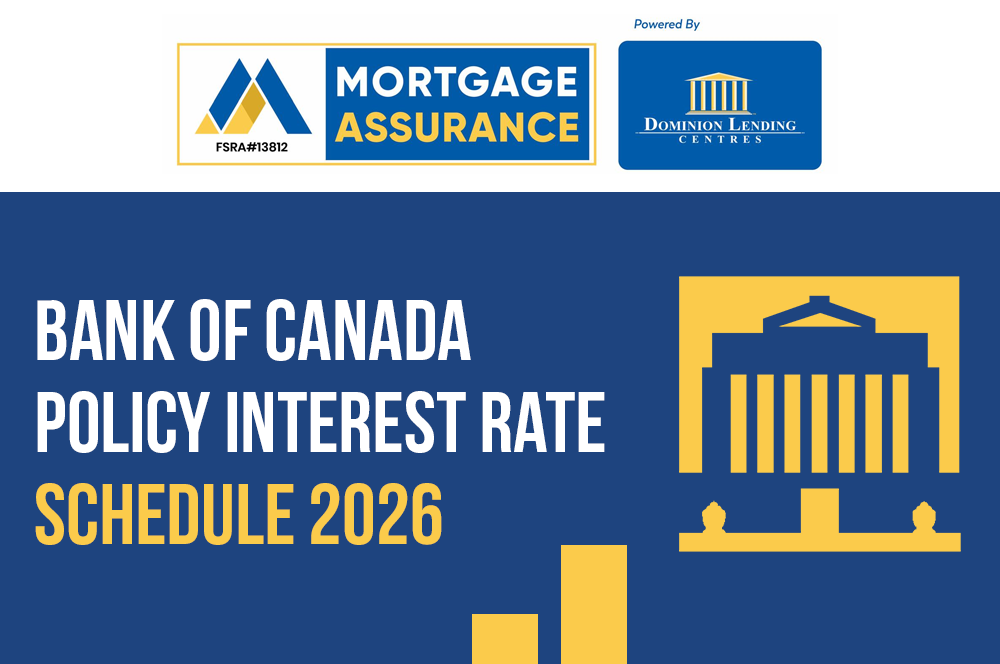For many homeowners in Mississauga, one of the most significant financial decisions is when their mortgage term is about to expire. Do you renew your mortgage with your current lender, or should you consider refinancing to take advantage of new opportunities?
While both options involve re-negotiating your mortgage, refinancing and renewal serve different purposes. Understanding the differences and knowing which path suits your situation—can save you thousands of dollars and help you achieve your financial goals more quickly.
What Is Mortgage Renewal?
A mortgage renewal happens when your mortgage term ends (usually 1–5 years in Canada), but you still have an outstanding balance. Your lender will send you a renewal offer, typically a few months before the maturity date.
At renewal, you can:
- Stay with your current lender and accept their offer.
- Negotiate for better rates or terms.
- Switch lenders if another financial institution provides a better deal.
Example:
Let’s say you bought a home in Meadowvale, Mississauga, five years ago with a $600,000 mortgage at a 5-year fixed rate of 3.2%. Your term is ending this year, and you still owe $450,000. Your lender offers a renewal at 5.4%. You can either accept it, shop around for better rates, or switch lenders to save money.
What Is Mortgage Refinancing?
Mortgage refinancing means replacing your current mortgage with a completely new one, either with the same lender or a different one. Unlike renewal, refinancing does not have to wait until your term ends—you can refinance mid-term (though penalties may apply).
Homeowners in Mississauga often refinance to:
- Access home equity (for renovations, investments, or debt consolidation).
- Secure a lower interest rate if market conditions are favorable.
- Change mortgage terms (e.g., switching from a variable to a fixed rate).
- Consolidate high-interest debt, such as credit cards or personal loans.
Example:
Suppose you live in Port Credit, Mississauga, and owe $400,000 on your mortgage. Your home is now worth $900,000. You could refinance up to 80% of your home’s value ($720,000) and use the extra funds to consolidate debt, fund your child’s university tuition, or invest in another property.
Mortgage Renewal vs. Refinancing: Key Differences
| Feature | Mortgage Renewal | Mortgage Refinancing |
| Timing | At the end of a mortgage term | Anytime (mid-term or at renewal) |
| Purpose | Continue with your mortgage | Access equity, change terms, or consolidate debt |
| Costs | Usually little to no cost if staying with the same lender | May involve penalties, legal fees, and appraisal fees |
| Flexibility | Limited—mainly interest rate and term changes | High—can restructure the mortgage entirely |
| Best For | Homeowners satisfied with their mortgage | Homeowners needing access to equity or better terms |
Pros and Cons of Mortgage Renewal
Advantages of Renewal
- Simple Process: Often just signing a renewal agreement.
- No Major Costs: Staying with the same lender usually avoids fees.
- Negotiation Opportunity: You can shop around for better rates in Mississauga’s competitive market.
Disadvantages of Renewal
- Limited Flexibility: Mainly focused on rates and term lengths.
- Missed Opportunities: You might overlook better options if you automatically sign the lender’s offer.
- Not Ideal for Debt: Renewal won’t help if you want to consolidate debt or access equity.
Pros and Cons of Mortgage Refinancing
Advantages of Refinancing
- Access Equity: Tap into your home’s value for renovations, investments, or education.
- Debt Consolidation: Roll high-interest debts into your mortgage at a much lower rate.
- Flexible Terms: Switch from fixed to variable or adjust amortization.
- Lower Payments: Potentially reduce your monthly obligations.
Disadvantages of Refinancing
- Costs & Penalties: Breaking your mortgage early can result in prepayment penalties, as well as additional legal and appraisal fees.
- Approval Process: Requires a complete application, credit checks, and verification of income.
- Risk of Longer Debt: Extending amortization could increase the overall cost of borrowing.
When Renewal Makes Sense in Mississauga
Mortgage renewal is often the right choice when:
- You are satisfied with your current lender and want the best available rate.
- You don’t need to access equity for significant expenses.
- You want a hassle-free process with minimal fees.
- Market conditions make switching lenders unnecessary.
For example, if you own a home in Erin Mills and your lender offers a competitive renewal rate, it may be easiest to renew without significant changes.
When Refinancing Makes Sense in Mississauga
Refinancing could be the better option if you:
- Want to renovate your Mississauga home (kitchen upgrade, basement finishing, etc.).
- Need funds for investment or education.
- Have high-interest debt and want to consolidate into one manageable payment.
- Believe current mortgage rates are better than your existing one.
For example, many homeowners in Central Mississauga refinance to free up equity for investment properties, given the city’s strong rental demand.
Costs to Consider
Both renewal and refinancing come with potential costs.
- Renewal Costs: Typically free if you stay with the same lender. Switching may involve small legal or transfer fees.
- Refinancing Costs: These can include prepayment penalties (typically 3 months’ interest or interest rate differential), appraisal fees ($300–$500), and legal fees ($700–$1,500).
Always calculate whether the potential savings or benefits outweigh these costs.
The Mississauga Housing Market in 2025: Why It Matters
As of 2025, Mississauga’s real estate market remains strong, with average home prices hovering above $1 million in some neighborhoods like Lorne Park and Mineola. With rising home values, refinancing has become an increasingly attractive option, as homeowners have built significant equity.
At the same time, interest rates in Canada remain higher than pre-pandemic levels, which makes shopping around at renewal especially important. Even a slight difference—say 0.5%—can save thousands over your mortgage term.
How to Decide Between Refinancing and Renewal
Here’s a quick decision-making framework:
- Do you need extra funds or want to consolidate debt?
- If yes → Refinance.
- If no → Move to the next step.
- Is your current rate uncompetitive compared to today’s offers?
- If yes → Consider refinancing or switching at renewal.
- If no → Renewal may be best.
- Are you okay with potential fees and paperwork?
- If yes, refinancing could provide long-term benefits.
- If no → Renewal is the simpler option.
Tips for Mississauga Homeowners
- Start Early: Begin reviewing renewal offers at least three to four months before your term ends.
- Shop Around: Compare rates from banks, credit unions, and mortgage brokers in Mississauga.
- Negotiate: Never accept your first renewal offer without trying to negotiate.
- Work with a Broker: Mortgage brokers can access multiple lenders and find competitive refinancing options.
- Consider Your Goals: Are you trying to pay off your mortgage more quickly, reduce your monthly payments, or access your equity? Your answer determines whether renewal or refinancing is the right choice.
Final Thoughts
For Mississauga homeowners, choosing between mortgage renewal and refinancing comes down to your financial goals. Renewal is the simpler, lower-cost option if you’re mainly focused on keeping your mortgage on track with a competitive rate. Refinancing, on the other hand, offers flexibility and access to equity but comes with added costs and complexity.
A well-informed decision today can save you money, reduce financial stress, and help you make the most of your home investment in 2025 and beyond.






